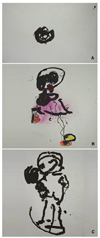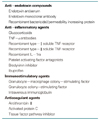Abstract
Sepsis is defined as the presence of pathogenic microorganisms or their toxins in tissues or in the blood. It can be accompanied by multi-organ failure and can potentially lead to death if not treated properly. The pathogenesis of sepsis is related not only to the activation of inflammatory pathways but also to an immunodepressed state. The modulation of the host response to infection has been studied as an adjunctive therapeutic approach in many preclinical investigations and clinical trials. However, there are several limitations of immunomodulators currently in use for those studies. A review of the major clinical trials of immunomodulatory therapies in sepsis provides a perspective on the reasons why such approaches have failed to show benefits. Above all, the criteria for patient inclusion have not considered the timing of administration of immunomodulators, the infected organisms, the site of infections, and the monitoring of immune competence. These might have contributed to the negative results of clinical trials conducted thus far. Therefore, future studies addressing these factors may demonstrate a beneficial role of immunomodulatory therapies in well-defined groups of patients with severe infection.




 PDF
PDF ePub
ePub Citation
Citation Print
Print





 XML Download
XML Download